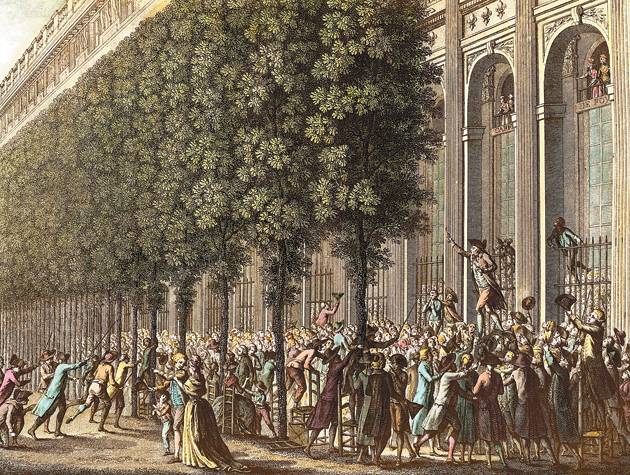

Criticism was specifically directed at monasteries where monks and nuns spent their days in prayer, much to the ire of philosophes who thought they should instead be reproducing for the good of the nation. The writer Louis-Sebastien Mercier complained in 1782 that Paris was ‘full of priests and tonsured clerics who serve neither the church nor the state’ and who were occupied with nothing but ‘useless and trifling’ matters. Although the philosophe Voltaire managed some praise for the young nuns who devoted their lives to caring for the sick and poor, the clergy were seen as less useful. France’s lack of toleration for religious minorities provided another. The scandal surrounding the divisive theological movement of Jansenism, exacerbated by the heavy-handed treatment of its followers earlier in the century, furnished one reason for attacking the Church’s authority and its close links with the monarchy. While the philosophes appreciated the value of religion in promoting moral and social order, the Church itself was condemned for its power and influence. The Enlightenment quest to promote reason as the basis for legitimacy and progress found little to praise in the Church. What is clear, however, is that the eighteenth-century Church was attracting growing criticism from the philosophes, the intellectuals of the Enlightenment who systematically questioned every aspect of French government and society. Regional studies of religious belief and practice reveal significant differences between urban and provincial France, between elites and the rest of the population, and, to a lesser degree, between men and women. Others trace a period of decline, with a small but noticeable decrease in religious observance in the decades before the Revolution.


Some suggest that it was still flourishing after the efforts of the Council of Trent (1545-63) to reform and revitalise the Church, as witnessed by its well-educated clergy, numerous and varied religious orders, and renewed forms of worship. Historians are divided over the strength of Catholicism in late eighteenth-century France. How did it come to this? What did revolutionaries hope to achieve? And why did Napoleon set out to reverse the situation? The Decline of Catholicism? Yet, by 1794, France’s churches and religious orders were closed down and religious worship suppressed. Being French effectively meant being Catholic.
#FRENCH REVOLUTIONARY CALENDAR SUNDAYS WORKERS FULL#
France’s population of 28 million was almost entirely Catholic, with full membership of the state denied to Protestant and Jewish minorities. The French Catholic Church, known as the Gallican Church, recognised the authority of the pope as head of the Roman Catholic Church but had negotiated certain liberties that privileged the authority of the French monarch, giving it a distinct national identity characterised by considerable autonomy. In 1789, the year of the outbreak of the French Revolution, Catholicism was the official religion of the French state.


 0 kommentar(er)
0 kommentar(er)
